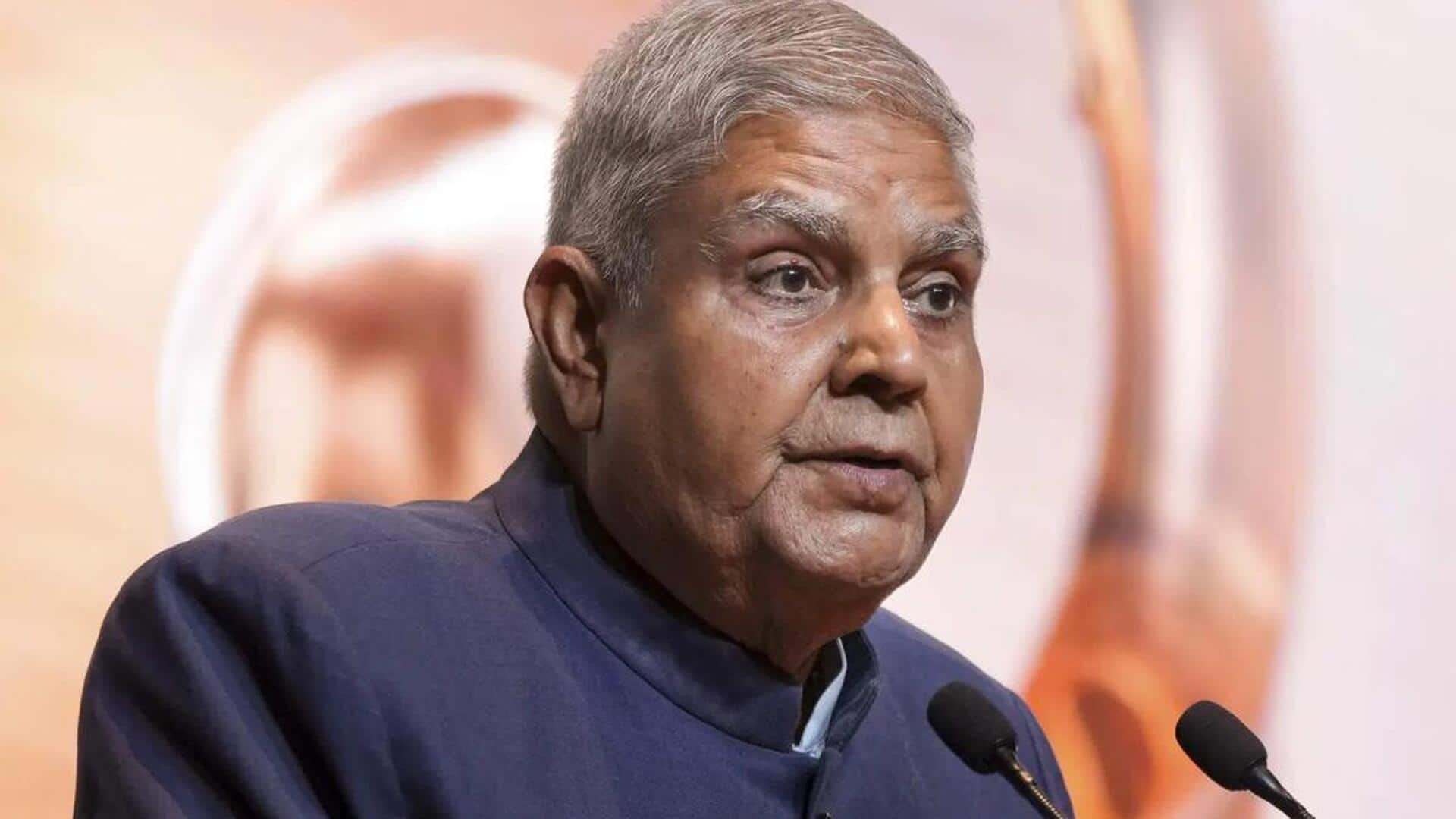
Election Commission announces schedule for vice president's election
What's the story
The Election Commission of India (ECI) has announced the schedule for the vice presidential election. The election was necessitated after Jagdeep Dhankhar's sudden resignation from office on July 21. The last date for filing nominations is August 21, with candidates allowed to withdraw their names by August 25. Voting will be held on September 9, and results will be declared on the same day.
Election process
Who can contest for Vice President's post?
The vice president is elected by an Electoral College, which includes elected and nominated members of the Rajya Sabha and elected members of the Lok Sabha. According to Article 324 of the Indian Constitution, the ECI is responsible for conducting this election. To be eligible for election as vice-president, a candidate must be a citizen of India, at least 35 years old, and qualified to be elected as a Rajya Sabha MP.
ECI's responsibility
ECI's responsibility during elections
The ECI has to prepare and maintain a current list of the members of the Electoral College with their latest addresses, as per Rule 40 of the Presidential and Vice-Presidential Elections Rules, 1974. A secret ballot will be used to cast votes, and political parties are not allowed to give whips to their MPs in the vice presidential election. Bihar CM Nitish Kumar, Jammu and Kashmir LG Manoj Sinha, and Delhi LG VK Saxena are among likely candidates for VP.
Polls
Electoral college
For the upcoming VP election, the electoral college is made up of 12 nominated members, 233 elected Upper House members, and 543 Lok Sabha MPs. The ruling Bharatiya Janata Party-led National Democratic Alliance and the Opposition INDIA alliance have yet to announce their candidates. Pramod Chandra Mody, the Rajya Sabha Secretary General, is the returning officer for the elections. Two assistant returning officers have also been assigned, according to the poll panel.
VP
Dhankhar cited health reasons
Dhankhar resigned from office last month, citing health concerns and the need to follow medical advice. While his resignation letter cited health reasons, it has sparked discussions in political circles about potential internal problems within the government. Among many other opposition leaders, Congress leader Jairam Ramesh had stated that there were "far deeper reasons" behind Dhankhar's decision.